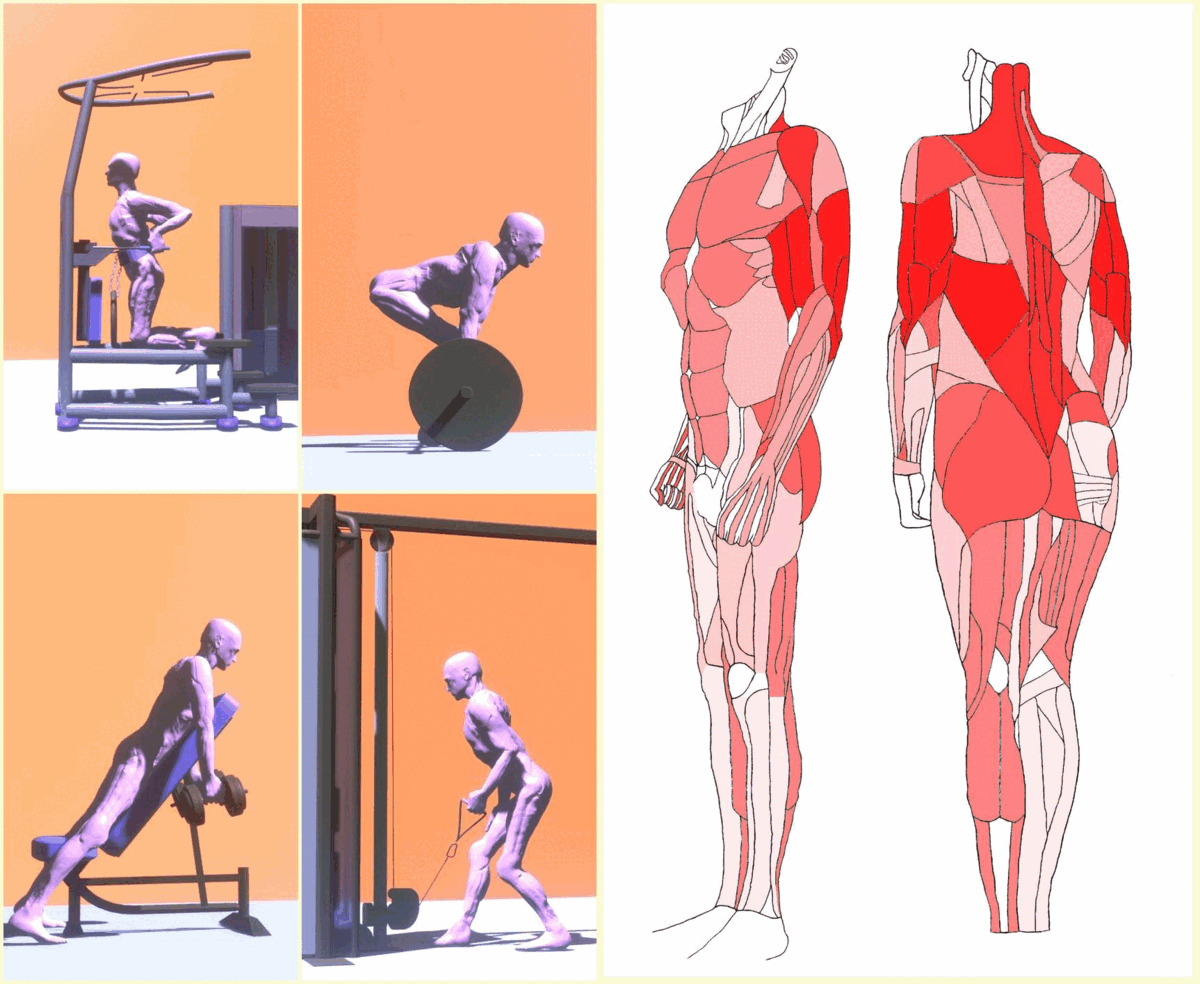BETA ONE 2024

With BETA ONE of Muscle Memo, you can look up estimated muscle engagement for a selection of physical exercises, where the varying roles of muscles in an exercise have been converted into numerical values representing the muscle's level of contribution, for the purpose of assisting practitioners to maintain a balanced workout.
Users can register their workout sessions into a calendar, which will give them an overview of their distribution of muscle engagement, long-term. Users can also register details for each exercise, such as length of exercise, number of sets, number of repetitions, weights used, and distances (where applicable). The registration form gives alerts for joints that might be overworked, taking into account both the workout of the day in question and the day before.
Once the registration of a workout session is complete, the system produces a new visualization of the muscle engagement for the session, where the muscle engagement is represented by shades of red, where the muscle that has been worked the most is in the strongest shade of red.
Workout sessions can be registered as either planned or performed, depending on whether the workout day is in the past or the future, and past planned workouts can be converted into performed ones.
You can register for an account with BETA ONE of Muscle Memo and start registering your workouts.
As this is a beta version of the service, it is still in an experimental stage. New features are likely to be added in the near future. This system is in no way a substitute for live guidance of a personal trainer. However, the software is a handy tool for practitioners who feel confident enough to perform their exercises unguided.